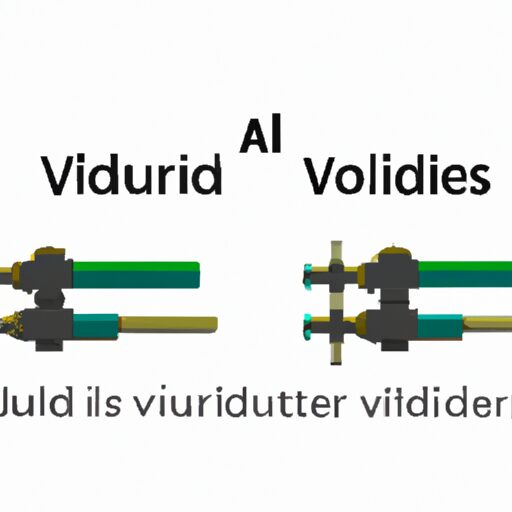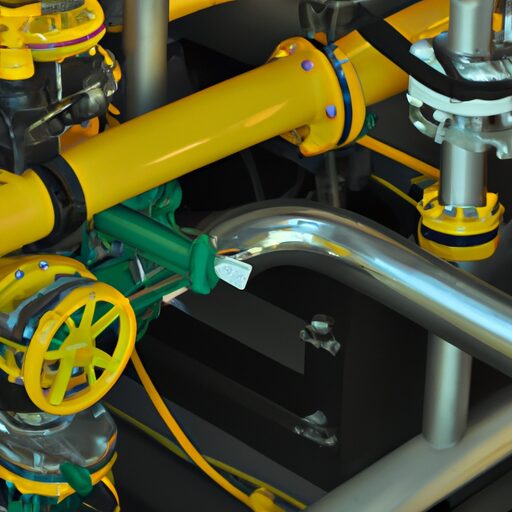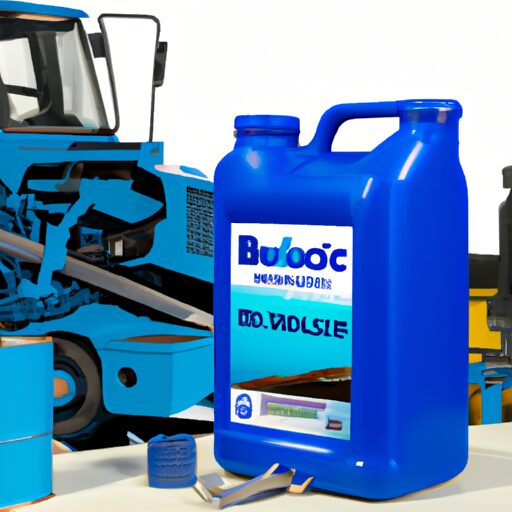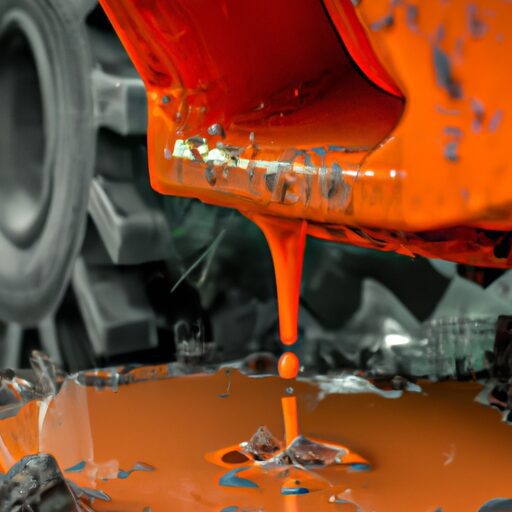Can I Use Hydraulic Oil Instead Of Hydraulic Fluid
Hydraulic systems are widely used in various industries for their ability to transmit power efficiently. The proper functioning of these systems relies on the use of appropriate hydraulic fluid. However, some individuals may wonder if hydraulic oil can be used as a substitute for hydraulic fluid. This article aims to explore this question by examining the characteristics and differences between hydraulic oil and hydraulic fluid, as well as considering manufacturer recommendations.
By adhering to technical precision and providing detailed information, this article will guide readers in making an informed decision regarding the use of hydraulic oil instead of hydraulic fluid. Additionally, potential risks and consequences associated with such substitution will be discussed, along with the benefits and drawbacks that may arise from using hydraulic oil in place of hydraulic fluid.
Ultimately, understanding these factors is crucial for ensuring the proper maintenance and care of hydraulic systems.
Understanding Hydraulic Oil and Hydraulic Fluid
Hydraulic oil and hydraulic fluid, although often used interchangeably in everyday language, are actually distinct substances with different properties and compositions. Hydraulic oil is a type of hydraulic fluid that is specifically formulated to meet the requirements of hydraulic systems. It is typically made from highly refined mineral oils or synthetic fluids, such as polyalphaolefins (PAOs) or phosphate esters.
One of the key properties of hydraulic oil is its viscosity, which determines its resistance to flow. This property is crucial for ensuring proper lubrication and efficient operation of hydraulic systems. Additionally, hydraulic oil must have good thermal stability to withstand high temperatures without breaking down or losing its lubricating properties.
On the other hand, hydraulic fluid refers to a broader category that encompasses various types of fluids used in hydraulic systems. While some hydraulic fluids may be similar to hydraulic oil in terms of composition, others can consist of water-based solutions or even biodegradable substances.
In summary, while both hydraulic oil and hydraulic fluid are essential for the functioning of hydraulic systems, they differ in terms of their specific properties and compositions. Understanding these differences is crucial for selecting the appropriate fluid for a given application.
Differences Between Hydraulic Oil and Hydraulic Fluid
There exists a discernible distinction between hydraulic oil and hydraulic fluid, resembling the contrast between golden sunlight streaming through a crystal-clear windowpane and the gentle glow of moonlight reflecting on still waters. Hydraulic oil and hydraulic fluid are both essential components in hydraulic systems, but they possess different properties and characteristics.
Hydraulic oil is specifically formulated to lubricate and protect various components within a hydraulic system. It typically has an anti-wear additive that helps minimize friction between moving parts, ensuring smooth operation. Moreover, it possesses excellent thermal stability, which allows it to maintain its viscosity even under high operating temperatures. Hydraulic oil also has good water separation capabilities, preventing the formation of emulsions.
On the other hand, hydraulic fluid is a more general term that encompasses various types of fluids used in hydraulic systems. Unlike hydraulic oil, which is primarily mineral-based, hydraulic fluid can be mineral-based or synthetic-based. Synthetic-based fluids offer advantages such as higher resistance to oxidation and better low-temperature performance.
In summary, while both hydraulic oil and hydraulic fluid serve similar purposes in hydraulic systems, their properties and characteristics differ significantly. Understanding these differences is crucial for selecting the appropriate fluid for specific applications.
Transitioning into the subsequent section about manufacturer recommendations…
Manufacturer Recommendations
Manufacturer recommendations are crucial when selecting the appropriate fluid for specific applications, as they provide valuable insight into the optimal choice based on factors such as system requirements, operating conditions, and equipment compatibility. The manufacturer’s expertise and understanding of their hydraulic systems enable them to offer guidance on which type of fluid should be used. This is important because using the wrong fluid can lead to compatibility issues that may compromise performance and cause damage to the system.
To illustrate this point, consider the following table:
| Manufacturer | Recommended Fluid |
|---|---|
| Manufacturer A | Hydraulic Fluid X |
| Manufacturer B | Hydraulic Fluid Y |
| Manufacturer C | Hydraulic Fluid Z |
In this hypothetical example, different manufacturers recommend different fluids for their hydraulic systems. This highlights the fact that there is no one-size-fits-all solution when it comes to hydraulic fluids. Each manufacturer has likely conducted extensive testing and analysis to determine which fluid works best with their specific system design.
Using hydraulic oil instead of hydraulic fluid can have potential risks and consequences. In the subsequent section, we will explore these risks in more detail.
Potential Risks and Consequences of Using Hydraulic Oil Instead of Hydraulic Fluid
The usage of inappropriate substances in hydraulic systems can result in severe consequences and potential dangers to the overall performance and integrity of the machinery. When considering the use of hydraulic oil instead of hydraulic fluid, it is crucial to understand the risks involved. Here are four potential risks and consequences:
-
Decreased Lubrication: Hydraulic oil may not provide adequate lubrication, leading to increased friction and wear on components. This can result in premature failure of seals, valves, and other critical parts.
-
Reduced System Efficiency: Hydraulic fluids are specifically formulated to maintain optimal viscosity under varying temperatures and pressures. Using hydraulic oil as a substitute may lead to reduced system efficiency due to improper viscosity characteristics.
-
Compatibility Issues: Hydraulic systems often contain specific materials such as seals, hoses, or gaskets that are designed for compatibility with hydraulic fluid. The use of hydraulic oil may cause these materials to degrade or swell, compromising system integrity.
-
Safety Hazards: In some cases, using hydraulic oil instead of hydraulic fluid can pose safety hazards due to its lower flashpoint or higher toxicity levels.
Understanding these risks and consequences highlights the importance of adhering to manufacturer recommendations when it comes to selecting appropriate fluids for hydraulic systems. However, there are also benefits and drawbacks associated with using hydraulic oil as a substitute that will be discussed in the subsequent section without writing ‘step’.
Benefits and Drawbacks of Using Hydraulic Oil as a Substitute
The use of hydraulic oil as a substitute for hydraulic fluid presents both benefits and drawbacks. One benefit is the potential cost-effectiveness of using hydraulic oil, as it may be less expensive than specialized hydraulic fluids. Additionally, hydraulic oil is generally more readily available, which can make it a convenient option for certain applications. However, a drawback of using hydraulic oil is that it may not provide the same level of performance and efficiency as specialized hydraulic fluids, which are designed to meet specific requirements and provide optimal performance in hydraulic systems.
Cost-effectiveness and Availability
Cost-effectiveness and availability are important factors to consider when determining whether hydraulic oil can be used instead of hydraulic fluid. In terms of cost effectiveness, using hydraulic oil as a substitute for hydraulic fluid can be advantageous. Hydraulic oil is often less expensive than specialized hydraulic fluids, making it a more economical option for some applications. Additionally, the availability of hydraulic oil is generally higher compared to specific hydraulic fluids, which may be harder to find or require longer lead times for procurement.
However, it is crucial to note that the use of hydraulic oil may not always be suitable for all systems and components. Specialized hydraulic fluids are formulated with specific additives and properties tailored to meet the requirements of certain applications. These additives provide enhanced lubrication, corrosion protection, and stability under extreme conditions.
Considering both cost-effectiveness and availability alongside performance and efficiency will help determine whether using hydraulic oil as a substitute is feasible in a given situation.
Performance and Efficiency
Performance and efficiency play a crucial role in determining the suitability of hydraulic oil as a substitute for specialized hydraulic fluid, as they directly impact the overall functionality and effectiveness of the system. To understand this better, a performance analysis can be conducted to compare the performance of hydraulic oil versus hydraulic fluid. This analysis would consider factors such as viscosity, lubrication properties, and heat transfer capabilities. Additionally, it is important to consider the environmental impact of using hydraulic oil instead of hydraulic fluid. Hydraulic fluids are designed to be more environmentally friendly with low toxicity levels and biodegradability. The use of hydraulic oil may have negative implications on the environment if not properly managed. Therefore, while considering cost-effectiveness and availability, it is essential to evaluate the performance and environmental aspects before deciding whether or not to use hydraulic oil instead of hydraulic fluid.
Moving forward into discussing proper maintenance and care for hydraulic systems…
Proper Maintenance and Care for Hydraulic Systems
Proper maintenance and care for hydraulic systems involves ensuring the use of appropriate hydraulic fluid rather than substituting it with hydraulic oil. This is essential to maintain the optimal performance and efficiency of the system.
To ensure smooth operation and longevity of a hydraulic system, it is crucial to follow these four key practices:
-
Regular inspection: Periodic checks are necessary to identify any potential issues or signs of wear and tear. By inspecting components such as hoses, fittings, seals, and filters, one can prevent major breakdowns or costly repairs.
-
Contamination control: Effective filtration systems should be in place to remove contaminants from the hydraulic fluid. Dirt particles or water can cause damage to sensitive components like valves and pumps, leading to reduced performance.
-
Fluid level monitoring: Maintaining proper fluid levels is vital for system operation. Insufficient fluid can cause cavitation, while excessive amounts may lead to overheating or leakage.
-
Temperature regulation: Monitoring the temperature of the hydraulic fluid is crucial since extreme temperatures can affect its viscosity and overall performance. Heat exchangers or coolers may be employed to regulate temperature effectively.
By adhering to these maintenance practices, troubleshooting hydraulic issues becomes more manageable while minimizing downtime. Ultimately, making an informed decision about using appropriate hydraulic fluid plays a critical role in maximizing the lifespan and efficiency of your system.
Conclusion: Making an Informed Decision
To ensure optimal functioning and longevity of hydraulic systems, it is crucial to make an informed decision regarding the appropriate fluid to be utilized. When considering whether to use hydraulic oil instead of hydraulic fluid, it is essential to weigh the options carefully. Hydraulic systems are designed to operate with specific types of fluids that provide lubrication, cooling, and sealing properties necessary for their efficient operation. While hydraulic oil may seem like a suitable alternative due to its similar characteristics and availability, there are certain factors that need to be taken into account.
Firstly, manufacturers recommend using hydraulic fluids that meet specific industry standards and requirements. These fluids have been extensively tested and formulated to provide the necessary performance characteristics needed for hydraulic systems. Deviating from these recommendations can lead to reduced efficiency or even damage to the system components.
Secondly, while hydraulic oil may offer adequate lubrication properties, it may lack other essential qualities such as anti-wear additives or viscosity stability required for optimal system performance. Hydraulic fluids undergo rigorous testing and adhere to strict quality control measures ensuring they meet the specified standards.
In conclusion, making an informed choice about utilizing hydraulic oil versus hydraulic fluid entails considering the manufacturer’s recommendations and understanding the unique requirements of your specific system. While hydraulic oil might appear as a viable option due to its similarities with hydraulic fluid, it is important not to overlook potential shortcomings in terms of performance and compatibility with your particular equipment. By weighing all aspects thoroughly, you can ensure proper maintenance and care for your hydraulic system while maximizing its efficiency and lifespan.
Frequently Asked Questions
Can I use hydraulic oil instead of hydraulic fluid in any type of hydraulic system?
The advantages of using hydraulic oil over hydraulic fluid include improved lubrication properties and better resistance to high temperatures. However, potential risks of using hydraulic oil instead of hydraulic fluid may include compatibility issues and decreased system performance.
Is there a difference in cost between hydraulic oil and hydraulic fluid?
The cost difference between hydraulic oil and hydraulic fluid can vary depending on factors such as brand, composition, and performance. It is important to consider the specific requirements of the hydraulic system before making a decision based solely on cost.
Can using hydraulic oil instead of hydraulic fluid void the warranty of my hydraulic equipment?
Using hydraulic oil instead of hydraulic fluid may potentially void the warranty of your hydraulic equipment due to compatibility issues. It is crucial to consult the manufacturer’s specifications and recommendations for proper fluid selection to avoid any potential damage or warranty concerns.
Are there any specific hydraulic systems or components that are more sensitive to using hydraulic oil instead of hydraulic fluid?
Different hydraulic components have varying levels of sensitivity to using hydraulic oil instead of hydraulic fluid. The performance differences between the two substances can result in varied effects on system functionality and longevity.
What are the environmental implications of using hydraulic oil as a substitute for hydraulic fluid?
Using hydraulic oil as a substitute for hydraulic fluid can have significant environmental impacts. Hydraulic oil is not designed to meet the same safety and environmental regulations as hydraulic fluid, leading to potential leakage, contamination of soil and water sources, and negative effects on ecosystems.
Conclusion
In conclusion, it is imperative to consider the distinctions between hydraulic oil and hydraulic fluid when operating hydraulic systems. Manufacturer recommendations should always be followed to ensure optimal performance and avoid potential risks associated with using the wrong type of lubricant. While there may be benefits and drawbacks to using hydraulic oil as a substitute, proper maintenance and care are crucial for the longevity of the system. By making an informed decision based on technical knowledge, one can effectively maintain hydraulic systems and minimize any adverse consequences that may arise.







